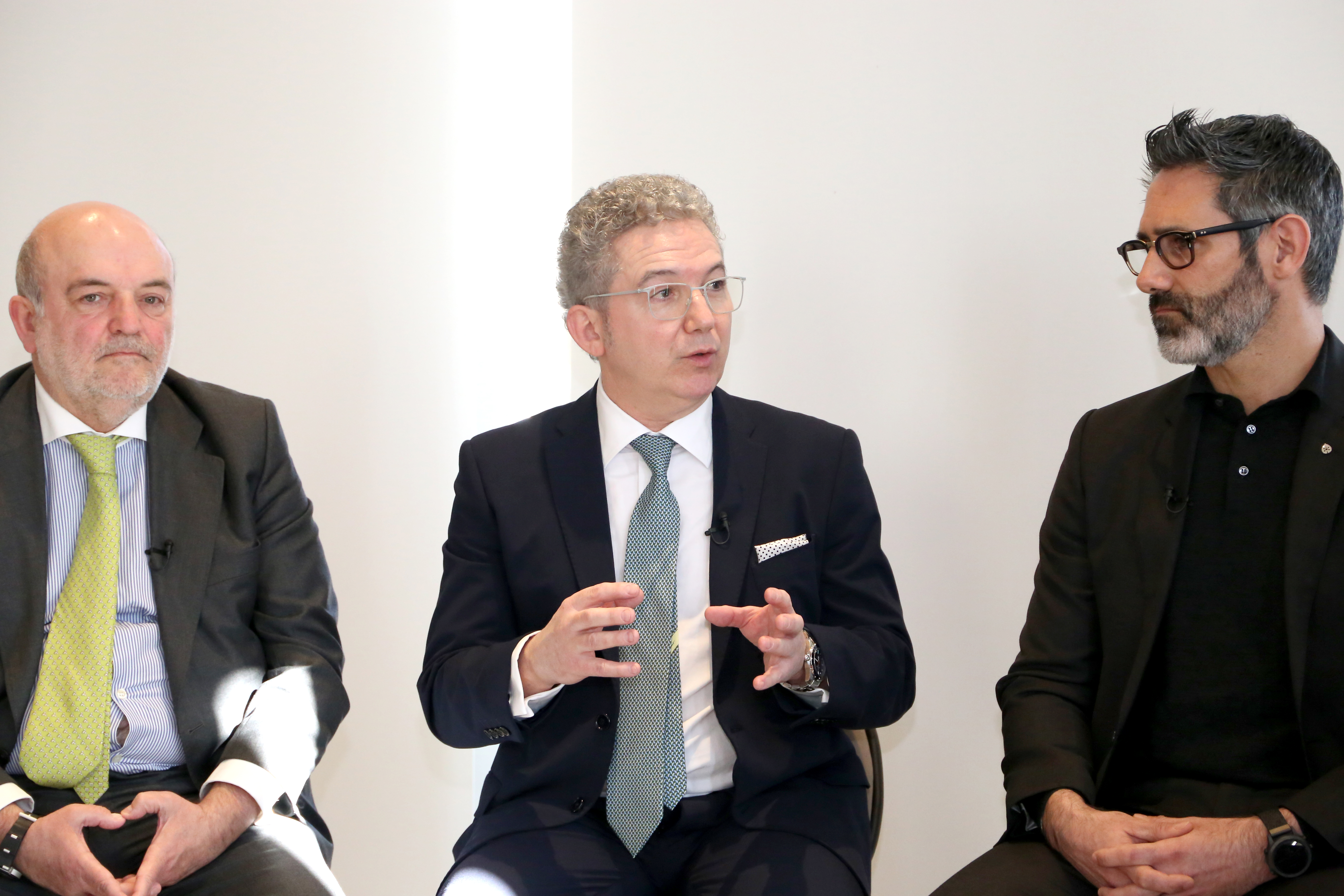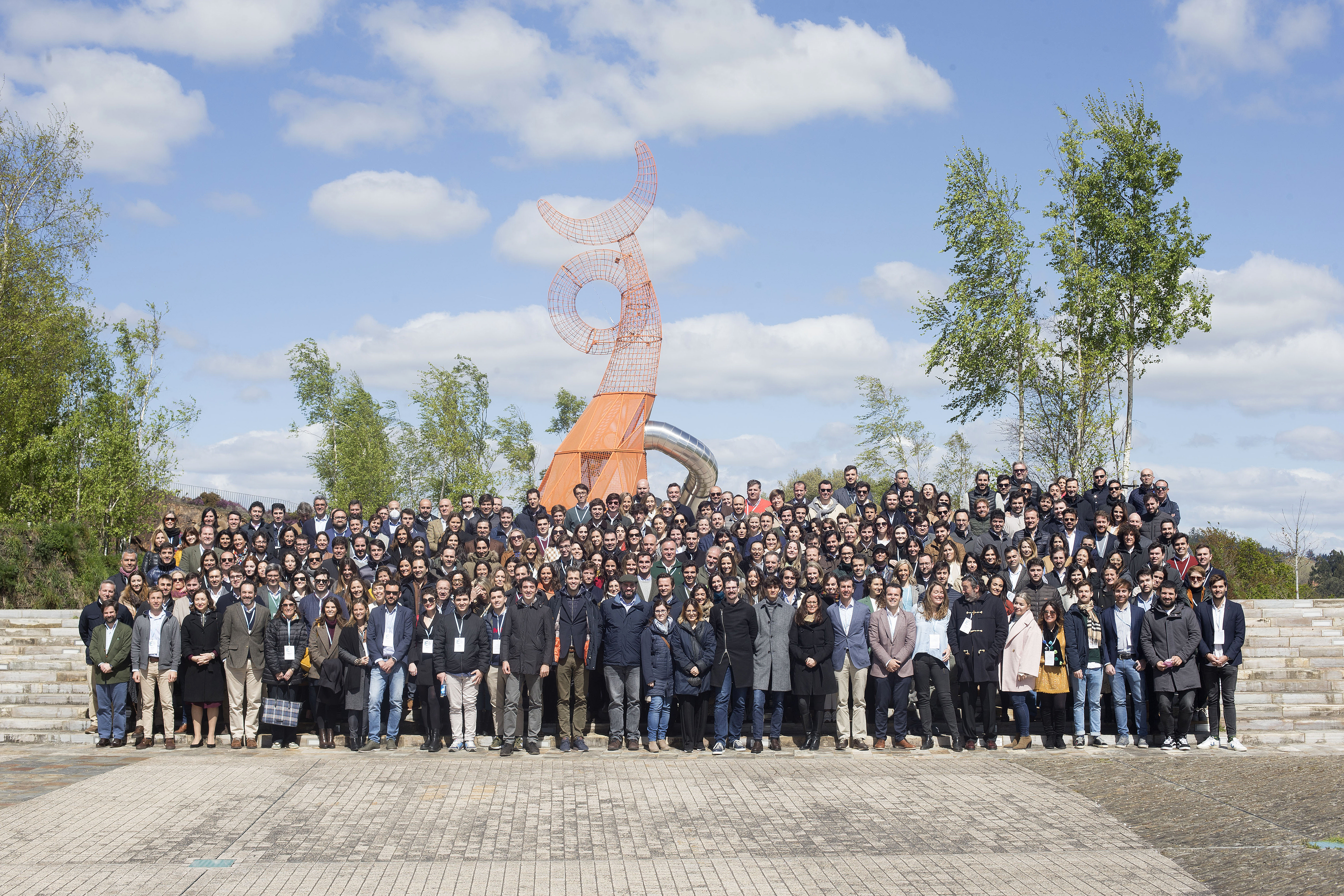Madrid, April 12th. – Entrepreneurs of family enterprises operating in strategic sectors, like energy, raw materials and road transportation have advocated for tax cuts instead of direct government aids to the industries impacted by the energy price hike. Similarly, given the significant structural weak points in these sectors which were exposed by the war in Ukraine, they have asked the executive branch for long-term policies aimed at reducing reliance on third countries.
This was expressed by Héctor Dominguis, CEO for GDES, a company based in Valencia; José Luis González Pescador, CEO for ABC Logistic, based in Cantabria and Pedro Palomo, CEO for Octaviano Palomo, based in Segovia; during a new session of the conference series “The Family Business Shares”, held in Madrid intended to look into the impact of the Ukraine war on the Spanish economy and companies.
This series is organized by the network of Family Business Regional Associations and sponsored by Credit Suisse.
According to Héctor Dominguis, CEO of GDES, a company in Valencia specialized in services for the energy sector, what the Ukraine war has done is accelerate and aggravate a long-standing energy crisis that have brought into light the weakness of the energy strategy in Spain. In his opinion, “the energy strategy needs to be planned years in advance with the purpose of reducing an excessive reliance on third countries, as it is the case of Spain”.
He believes that the debate about energy in Spain suffers from excessive politicization and should be guided instead by scientific and technological criteria. He defined a combination of energy sources that could limit the dependency on third countries and allow to maintain price stability. “With scientific data at hand, it makes no sense to consider shutting down nuclear plants in Spain over the next 10 years, and bet on combined cycles if there are tensions in the gas supply; on the other hand, nuclear power generation releases the same amount of CO2 than wind power, and have the same or a better impact than renewable energies, a fact that is upheld even by the Joint Research Center of the European Union”.
Dominguis explained that there is no country in the world considering an entirely renewable energy mix. “It is an unattainable goal, and if it were, it wouldn’t be advisable. Renewable energy sources constantly change and need to be backed up by a stable source, whether it is gas, coal, or nuclear energy”.
For GDES CEO, amid the current inflation juncture and the economic growth drop, the choice would be to “reduce the tax burden on income, and at the same time it would be desirable to configure a tax frame that would make nuclear energy generation viable”.
Inflation stress on the food industry
The food industry is another of the strategic industries, which had already been strained by the price rise of raw materials before the Ukrainian conflict broke out. “Since 2020, we have had bad cereal crops in some regions of the planet, which caused a supply problem now worsened by the war. It should be noted that Ukraine produces around 30% of the cereal in the world market”, explained Pedro Palomo, CEO for Octavio Palomo, a company in Segovia specialized in trading and distribution of cereals, fertilizers, raw materials for the agri-food industry.
In his opinion, this situation brings on the need to design more strategic crop policies, which extend limits and time frames for the transition to a fully green economy. He also advocated for a “tax reduction to compensate for the loss of competitiveness in the Spanish economy, which had a harder impact than the rest of its European competitors due to an inflation level higher than the European average level”.
Week points in the road transportation industry
Among the structural weak points that the Ukraine crisis and the fuel price rise have exposed in the road transportation industry, José Luis González Pescador, CEO for the Cantabrian company, ABC Logistic, mentioned its high atomization. “While Spanish road transportation companies own an average of 3.5 trucks, in Germany this number is 200; on the other hand, in our country there is great dependence on this kind of transportation due to the inefficacy of the railroad sector. Adding to this is a deficit of truck drivers in our road transportation industry caused by low wages, the poor margins of this economic activity and a great uncertainty about which will be the technological standard for the automobile industry in the coming years”.
Aiming at correcting these problems, the Cantabrian businessman spoke in favor of an industry agreement “the least interventionalist possible” intended to improve productivity in the industry; also, with the purpose addressing the current inflation juncture at a short term, he advocated that the government should return the tax increase it is getting through the inflation effect.

